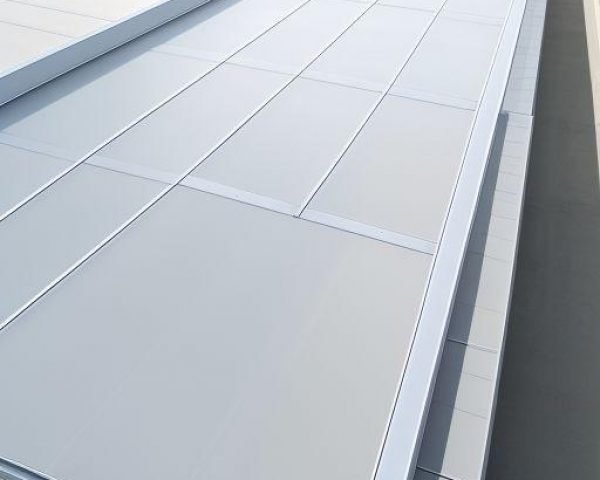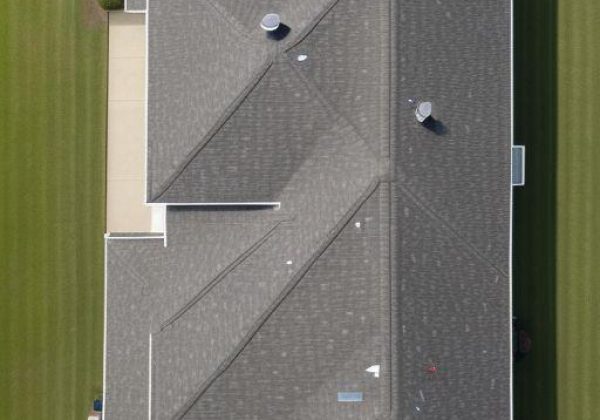How Much Should A Roofing Job Cost?
Introduction
When it comes to home improvement, few projects are as critical as roofing. A sturdy roof not only enhances the aesthetic appeal of your home but also protects it from the elements. But let’s be real—understanding how much a roofing job should cost can feel like navigating a maze without a map. With countless variables at play, it's essential to gather all the necessary information before making any decisions.
In this comprehensive guide, we will delve into every scr247.com aspect of roofing costs, helping you answer the burning question: How Much Should A Roofing Job Cost? Whether you're considering a minor repair or a complete roof replacement, we're here to provide insights that will empower your decision-making process.
Understanding Roofing Costs: What Influences The Price?
Factors Affecting Roofing Job Costs
- Different roofing materials come with varying price tags.
- Common options include asphalt shingles, metal roofing, tile, and wood shakes.
- Larger roofs naturally require more materials and labor.
- Roofs with multiple slopes or architectural features can complicate installation.
- Labor rates can vary significantly based on location and contractor expertise.
- Hiring experienced professionals often costs more upfront but may save you money in the long run through quality work.
- Your local market can greatly influence roofing prices.
- Urban areas typically have higher labor costs compared to rural locations.
- Certain times of year are busier for roofing contractors (like spring and summer).
- Off-peak seasons might lead to lower prices due to reduced demand.
- Some regions require permits for roof installation or replacement.
- These additional regulatory costs should be factored into your budget.
Types of Roofing Materials: Cost Breakdown
Asphalt Shingles
- Cost Range: $90 to $100 per square (100 square feet)
- Widely used due to affordability and ease of installation.
Metal Roofing
- Cost Range: $120 to $900 per square
- Highly durable and energy-efficient but comes at a higher price point.
Tile Roofing
- Cost Range: $300 to $700 per square
- Offers longevity and aesthetic appeal but requires professional installation due to weight.
Wood Shakes
- Cost Range: $250 to $400 per square
- Provides natural beauty but requires regular maintenance.
Comparative Table of Material Costs
| Material Type | Cost Per Square | Lifespan | Maintenance Needs | |-------------------|------------------|---------------|--------------------------| | Asphalt Shingles | $90-$100 | 15-30 years | Low | | Metal Roofing | $120-$900 | 40-70 years | Low | | Tile | $300-$700 | 50+ years | Moderate | | Wood Shakes | $250-$400 | 30 years | High |
How Much Should A Roofing Job Cost? An Overview of Pricing Models
Pricing by Square Footage
When discussing roofing costs, you’ll often hear about pricing per square foot. This common model allows homeowners to estimate their expenses based on their roof size:
Common Pricing Estimates
Here’s what you might expect:



- Minor Repairs: Ranges from $150 to $500 depending on damage extent.
- Partial Replacement: Roughly $1,500 to $5,000 depending on area affected.
- Complete Replacement: Typically between $7,000 and $20,000 based on material choices and size.
The Importance of Getting Multiple Quotes
Why You Should Shop Around
Obtaining multiple quotes is critical when planning any significant project like roofing:
What To Ask When Requesting Quotes
When reaching out for quotes, consider asking:
DIY vs Hiring Professionals: Which Is More Cost-effective?
Considerations for DIY Enthusiasts
Many homeowners contemplate tackling roofing projects themselves:
- Savings on labor costs
- Satisfaction of completing a challenging task
- Potential for costly mistakes
- Safety risks associated with heights
The Case for Professional Contractors
While DIY projects can be rewarding, hiring professionals often proves wise:
Hidden Costs You Might Not Consider
Unexpected Expenses During Installation
Even if you’ve budgeted carefully, hidden costs can arise:
FAQs About Roofing Costs
1. How do I find "roofing replacement near me"?
To locate reliable contractors in your area:
- Use online search engines with phrases like “roofing replacement near me.”
- Check local business directories or review aggregators like Yelp or Angie's List for ratings and feedback from former clients.
2. What is the most affordable roofing material?
Asphalt shingles are typically considered the most budget-friendly option available while still offering decent durability and aesthetics.
3. How often should I replace my roof?
Most roofs last between 15–30 years depending on material quality and climate conditions; however, routine inspections can help extend this lifespan through maintenance efforts.
4. Can I finance my roofing project?
Many contractors offer financing options tailored specifically for larger renovation jobs like roofing replacements; inquire directly with potential service providers about available plans!
5. What happens if my roof leaks after installation?
If water damage occurs post-installation under warranty coverage terms—typically defined by each contractor—you should contact them immediately so they can address any issues appropriately!
6. Are there tax incentives available for installing energy-efficient roofs?
Some states provide tax credits or rebates aimed at encouraging homeowners toward energy-efficient upgrades; check with local government resources regarding eligibility criteria specific within your region!
Conclusion
Deciding how much a roofing job should cost involves careful consideration of numerous factors—from material choice and labor rates to unexpected expenses that could arise during installation! By understanding these elements thoroughly before embarking upon any renovation project—especially one as crucial as replacing your roof—you'll empower yourself with knowledge necessary not only make informed decisions but also ensure lasting results designed withstand time itself!
So remember—whenever you're faced with questions about "how much should a roofing job cost?", take the time needed research thoroughly explore all options available before committing! Happy renovating!